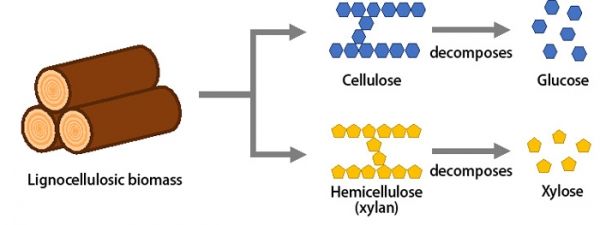A research group, consisting of doctoral student FUJIWARA Ryosuke, Associate Professor TANAKA Tsutomu (both of Kobe University’s Graduate School of Engineering) and Research Scientist NODA Shuhei (RIKEN Center for Sustainable Resource Science), has succeeded in improving the yield of target chemical production from biomass. They achieved this through metabolically engineering the bacteria used in bioproduction, so that it would use different kinds of sugar absorbed from the biomass for separate aims.
There are problems encountered when using microbes to produce target chemicals; if the microbes use the carbon sources (sugars) for their own propagation, target chemical production decreases. On the other hand, suppressing this propagation causes the microbes to weaken, resulting in an overall decline in production. To try to solve this issue, the research team developed a new strategy called Parallel Metabolic Pathway Engineering (PMPE), allowing them to control both target chemical production and microbe propagation. They used this approach to alter E. coli bacteria in order to successfully boost the production of the nylon precursor muconic acid.
If it becomes possible to utilize the selected carbon source solely for target chemical production and use the remaining sources for microbe propagation, this will bring about great advances in the production of aromatic compounds and raw materials for medical and chemical products.
Read more at Kobe University
Image: Structural components of Lignocellulosic biomass (which does not compete with global food supplies) CREDIT: Kobe University


